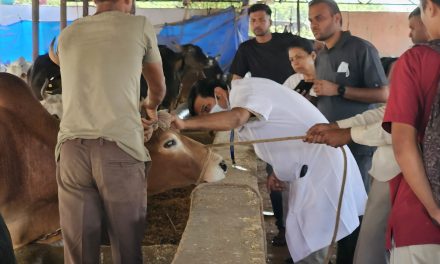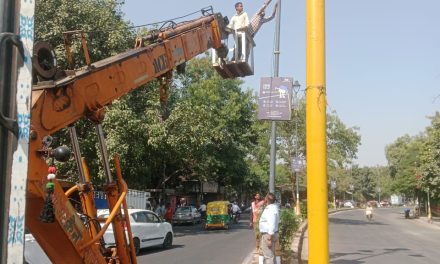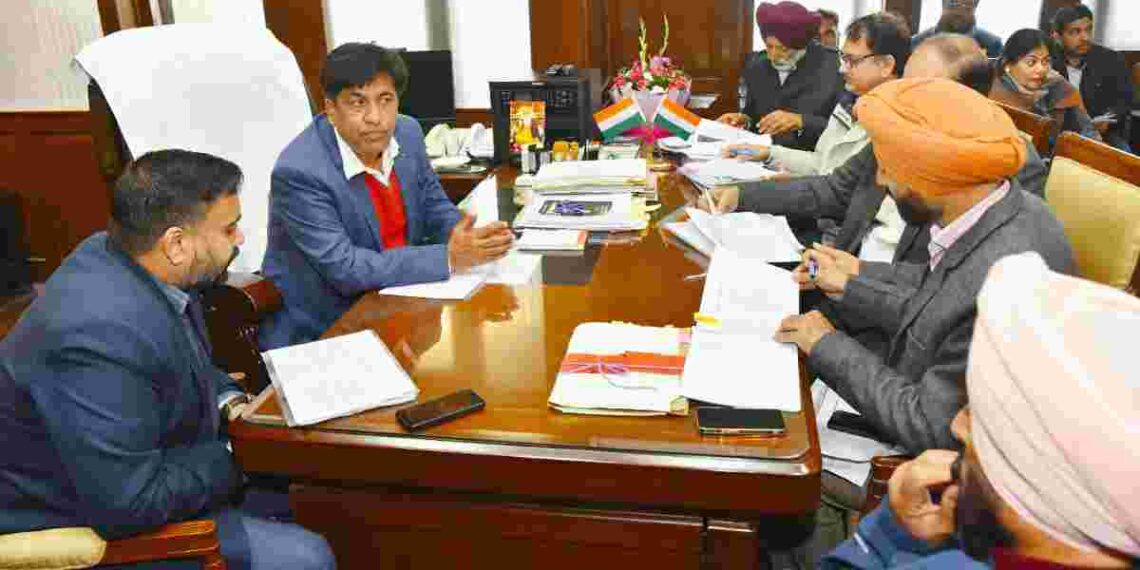Punjab Govt Signs MoU with Kuantum Papers to Boost Water Conservation, Focus on Clean Water Supply to Villages
Chandigarh, January 2: The Punjab government, in its ongoing efforts to promote water conservation and improve rural water supply, signed a Memorandum of Understanding (MoU) with Kuantum Papers on Tuesday. The partnership aims to bolster water conservation initiatives across the state, especially in areas facing acute water scarcity. Punjab’s Water Supply and Sanitation Minister, Bram Shanker Jimpa, held a review meeting with top department officials to discuss the progress of ongoing projects.
During the meeting, Minister Jimpa reiterated the government’s commitment to ensuring the timely completion of all water supply projects, particularly those aimed at delivering clean and potable water to villages. He emphasized the need for swift action in villages where groundwater is either non-potable or insufficient, including those in the Kandi region, where water scarcity has been a persistent issue.
Jimpa commended the leadership of Chief Minister Bhagwant Singh Mann for steering the state toward a vision of ‘Rangla Punjab,’ a thriving and prosperous Punjab. He noted that achieving this vision would require prioritizing essential facilities like clean water, especially for rural communities. According to the minister, the Punjab government is working diligently to improve the overall quality of life in villages, and providing clean water is one of the top priorities.
The Minister also focused on the importance of ongoing canal water projects, which will address the non-potable groundwater problem in several villages. To tackle this issue, canal water will be purified through treatment plants before being supplied to affected areas. This strategy is expected to provide a sustainable solution for ensuring access to clean drinking water in many parts of Punjab.
In his address, Jimpa also highlighted that he would personally inspect several under-construction projects to evaluate their progress and the conditions on the ground. He stressed that these projects are nearing completion and that Chief Minister Mann will soon dedicate them to the people of Punjab. The dedication of these projects is seen as a significant milestone in the state’s efforts to improve water infrastructure and meet the growing demand for clean water in rural areas.
In addition to water supply initiatives, the meeting also covered various other issues concerning water quality and management. Minister Jimpa inquired about the functioning of water testing laboratories and the regularity of water sampling to ensure that all water supplied meets safety and purity standards. Ensuring water quality remains a key component of the government’s efforts to enhance public health and environmental sustainability.
Jimpa also reviewed the status of No Objection Certificates (NOCs) for ongoing projects. These certificates are essential for clearing the necessary administrative hurdles and ensuring that projects move forward without unnecessary delays. The Minister emphasized the need to streamline processes so that all water supply projects can be completed within their deadlines.
The review meeting was attended by key officials from the Water Supply and Sanitation Department, including Harpreet Sudan, Head of Department; J.J. Goyal, Chief Engineer (PDQA); R.K. Khosla, Chief Engineer (Central); J.S. Chahal, Chief Engineer (South); Jasbir Singh, Chief Engineer (North); and other senior officers. The officials shared updates on their respective projects and assured the Minister that all efforts were being made to meet the set timelines.
With this renewed focus on water conservation and infrastructure development, the Punjab government’s partnership with Kuantum Papers is expected to be a pivotal step in tackling the state’s water challenges. The collaboration aims to promote efficient water management practices, ensuring that the state’s water resources are used responsibly and sustainably. This initiative will likely pave the way for similar partnerships in the future, as Punjab continues to work towards becoming a model of water conservation and rural development.




